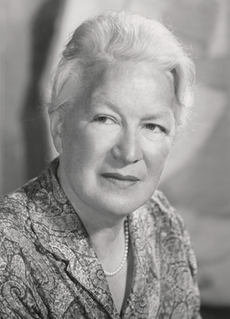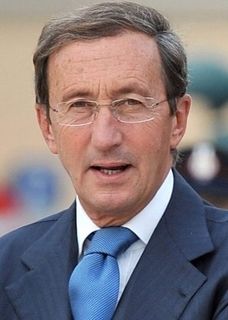A Quote by Truman Capote
I will say only that all a writer has to work with is the material he has gathered as the result of his own endeavor and observations, and he cannot be denied the right to use it. Condemn, but not deny.
Related Quotes
When men and women, boys and girls, are denied the right to education, the right to own land, the access to basic services like healthcare and clean water, a fair price for the crops they grow, a fair wage for the work they do, or the right to be part of making decisions that affect them, the result is poverty.
Resistants were on the right side, Salò Republic's combatants on the wrong one. One cannot equate who was fighting for a right cause of equality and freedom, and who, apart of goodfaith, was on the wrong side. The judgement of the Right [on Fascism] have to be negative, due to freedom limitation. We cannot deny ourselves history, and Fascism was a dictatorship that denied some fundamental freedoms.
Love your material. Nothing frightens the inner critic more than the writer who loves her work. The writer who is enamored of her material forgets all about censoring herself. She doesn't stop to wonder if her book is any good, or who will publish it, or what people will think. She writes in a trance, losing track of time, hearing only her characters in her head.
The human race may be compared to a writer. At the outset a writer has often only a vague general notion of the plan of his work, and of the thought he intends to elaborate. As he proceeds, penetrating his material, laboring to express himself fitly, he lays a firmer grasp on his thought; he finds himself. So the human race is writing its story, finding itself, discovering its own underlying purpose, revising, recasting a tale pathetic often, yet none the less sublime.
The great liability of the engineer compared to men of other professions is that his works are out in the open where all can see them. His acts, step by step, are in hard substance. He cannot bury his mistakes in the grave like the doctors. He cannot argue them into thin air or blame the judge like the lawyers. He cannot, like the architects, cover his failures with trees and vines. He cannot, like the politicians, screen his shortcomings by blaming his opponents and hope the people will forget. The engineer simply cannot deny he did it. If his works do not work, he is damned.
You have to get beyond your own precious inner experiences. The actor cannot afford to look only to his own life for all his material nor pull strictly from his own experience to find his acting choices and feelings. The ideas of the great playwrights are almost always larger than the experiences of even the best actors.
You can t, in sound morals, condemn a man for taking care of his own integrity. It is his clear duty. And least of all can you condemn an artist pursuing, however humbly and imperfectly, a creative aim. In that interior world where his thought and his emotions go seeking for the experience of imagined adventures, there are no policemen, no law, no pressure of circumstance or dread of opinion to keep him within bounds. Who then is going to say Nay to his temptations if not his conscience?






































